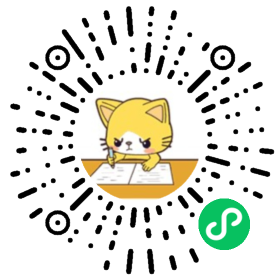相关试题
【填空题】
WP12系列发动机采用BOSCH公司生产的电子控制单元,主要由控制模块及3根连接___组成。
【填空题】
JW-4G接触网作业车电气系统主要包括___控制系统和交流系统。
【填空题】
JW-4G型接触网作业车车架后端设有电动工具接口,作为现场作业机具设备的___。
【填空题】
车辆运行总里程为___、后端车速里程表、前、后端微机控制显示器显示的里程之和。
【填空题】
车速里程表的功能是显示手动换挡工况时的车辆___、运行里程。
【填空题】
行车工作必须坚持___、统一指挥、逐级负责的原则。
【填空题】
电气控制柜内安装有换挡控制器、___等控制元件,是整个车辆的电气控制重要元件。
【填空题】
换档控制器是微机控制系统的硬件执行元件,能实现作业车调速、换向保护、___、超速保护等功能。
【填空题】
接触网多功能检修作业车大修周期为200000km或___年。
【填空题】
启动电机是___电动机,以蓄电池为电源。
【填空题】
启动电机主要由___,啮合机构和啮合传动机构三部分组成。
【填空题】
车钩具有闭锁、开锁和___三个工作状态。
【填空题】
常见的救援复轨方法有吊复法、拉复法、___。
【填空题】
安全阀装于风包的上端,为空气制动系统的___ 。
【填空题】
减压阀的功用是将总风包经列车管的0.69MPa高压气体,经减压阀降为0.49MPa,避免由于___,使闸瓦抱死轮对造成滑行而擦伤车轮。
【填空题】
截断塞门由塞门体、塞门心、手把和___等组成。
【填空题】
车轮踏面擦伤深度及局部凹下≦___mm。
【填空题】
摘钩时应执行“一关前,二关后,三___,四提钩”的措施。
【填空题】
接触网作业车司机在出乘前应检查车辆___路等密封装置有无渗漏。
【填空题】
当发电机向蓄电池充电时,形成的磁场使电流方向相反,指针向“___”偏转,表示充电。
【填空题】
当机车信号机点一个红色灯光时表示列车已越过地面显示___灯光的信号机。
【填空题】
接触网作业车紧急停车信号的鸣示方式为___。
【填空题】
四显示自动闭塞区段的进站信号机前方第一通过信号机的机柱上应涂___黑斜线。
【填空题】
关机后再开机,间隔时间必须大于___,以保证设备正常工作。
【填空题】
区间作业模式分为五种状态:【区间作业进入】【区间作业返回】【区间作业防碰】【区间作业编组】___。
【填空题】
非正常行车模式:具有地面信号确认﹑路票行车、绿色许可证行车﹑___四种控车状态,用于作业车在特殊情况时的控制。
【填空题】
GYK具有防接触网作业车___、警醒报警、轴温报警、风压报警功能。
【填空题】
若轨道车要越过防碰起点或终点作业,司机应控制轨道车在防碰起点或终点前___内停车后,按压【解锁】键人工解除曲线闭口控制,按区间作业防碰___控制运行。
【填空题】
当起步风压不足___时,发出风压报警语音提示,可按压【警惕】键解除报警。
【填空题】
当红黄灯掉码报警时,可按压___键解除报警。
【填空题】
进站信号机前接收到红黄灯,禁止___,按压【解锁】键提示“输入无效”。
【填空题】
发动机转速表的功能是显示手动换挡工况时的发动机工作转速、___。
【填空题】
64、待发动机工作一定时间后,操纵手油门控制手柄提高发动机转速至___r/min,提升空气压缩机的打风速度,观察总风缸风压逐渐上升到___后,进行制动机性能试验。
【填空题】
65、轨道车运行控制设备GYK和车载无线通信设备等的电源,均应取自车上___控制电源系统.
【填空题】
66、JW-4G型接触网作业车转向架横梁上安装有两个液压减震器,用以抑制车辆在直线上运行的 ___震动和 ___运动
【填空题】
67、启动电机主要由___,啮合机构和啮合传动机构三部分组成。
【填空题】
68、JW-4G型接触网作业车的 ___ 是传递和放大制动缸的制动力,并使闸瓦或闸片压紧车轮或制动盘,对车辆进行制动。



